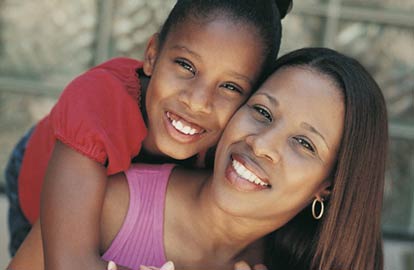
By DR. IVOR HORN
The first time I was interviewed about this subject my oldest child, a girl, was 9 years old. She is 13 now and many of those hypotheticals are now reality. Her body has matured in ways that look more young woman than little girl and her conversations and interests have changed as well. Boys have gone from “Eww!” to “Hmm?” Even though it never gets easy, the lessons I shared in those early years of puberty still apply.
Have “The Talk” Early and Often. The first conversation I had with my daughter about puberty was when she was 8 years old. We talked about the changes she was seeing in her friends because she was nowhere near puberty. The talk was really simple then. As I remind parents when their child asks where babies come from at 4 or 5, you don’t have to give every detail. Make sure your conversation is developmentally appropriate. Not just based on your child’s age, but their individual developmental maturity level.
These days our conversations are much more specific. The hygiene conversation is about more than making sure she wears deodorant. We talk about how to prepare for her first period, just in case it starts when she is at school or away at camp. We both feel a little uncomfortable (yes, even for me as a pediatrician), but we push our way through. I know she will be a lot less afraid when it happens and she won’t feel alone.
Take Advantage of Teachable Moments. I’m always on the lookout for chances to engage my daughter in conversations where we can both learn. Everything from the latest app she wants on her phone (Internet/Social Media Safety) to the conversations I overhear when I’m driving the “Mom Taxi” (Sex and Self-Respect).
When I was thinking what to write for this series, I asked my daughter what she and her friends would want me to share with parents about puberty. Her first response was “I don’t know.” Typical. But a few days later, she said, “There’s this Cosby Show episode….” So, here it is. [Season 7, Episode 9: The Infantry Has Landed (and Fallen They’ve Fallen Off the Roof) ] (Interesting commentary on the episode.) It gave me an idea of what she was thinking. The key message: listen first, ask questions, give them time to process, and then teach. Caveat: Be prepared to answer ANY questions, because there will be some whoppers!
Don’t Forget About the Boys. I have a 10-year-old son who has headed down the puberty road as well. The signs for boys are not as apparent, but the feelings are just as real. As a pediatrician, I probably pay a bit more attention to these subtle changes than others, but all moms and dads notice the smells! Be sure you don’t leave them wondering. My husband usually takes the lead on these conversations, but, just like it is important that he shares his perspective with our daughter, it is also important that I share mine with my son. Both kids will be curious about what is happening with the opposite sex in their classroom. So, just like with girls, refer to first and second tips above.
Even as a pediatrician, I don’t have all the answers. I look to my mom and dad friends who are going through or have been through it, to share their expertise. I’ve asked questions on everything from breastfeeding to periods. I’m sure I’ll still be asking when it comes to college and weddings.
We’ll be continuing the discussion about puberty and sex. Do you have any recommendations or questions?
Ivor Horn is a mom, practicing pediatrician and researcher with several publications in medical journals. She has appeared on the Today show and Good Morning America Health discussing health topics such as childhood obesity, puberty and breastfeeding. She lives in Washington, D.C., with her husband of more than 20 years and their two children. You can follow her on Twitter @DrIvorHorn. This post was reprinted, with permission, from Children’s National Medical Center.
RELATED POSTS:
1. {Dr. Ivor Is In} What Your Pediatrician Says To Your Child When You Leave the Room
2. {Let’s Talk About Sex} Tweens, Sex & the Essence Article That Scared the Crap Out Of Me
3. {Let’s Talk About Sex} The Best Ways For Parents To Get Ready For “The Talk”
4. Stakes Is High: Talking To My Teen About Sex Just Got Real—And I Can’t Be A Punk About It
Denene Millner
Mom. NY Times bestselling author. Pop culture ninja. Unapologetic lover of shoes, bacon and babies. Nice with the verbs. Founder of the top black parenting website, MyBrownBaby.
- Web |
- More Posts





Great information! I work with a lot of grandparents who are raising grandchildren and find that this is one of the hardest topics for them to discuss. It just wasn’t done ‘back in the day.’ I think it’s good that you incorporate ‘the talk’ for boys too. So many people feel that only girls should be privvy to the talk when boys experience puberty too. Thanks for sharing the info!
Syrone – glad you found it useful.